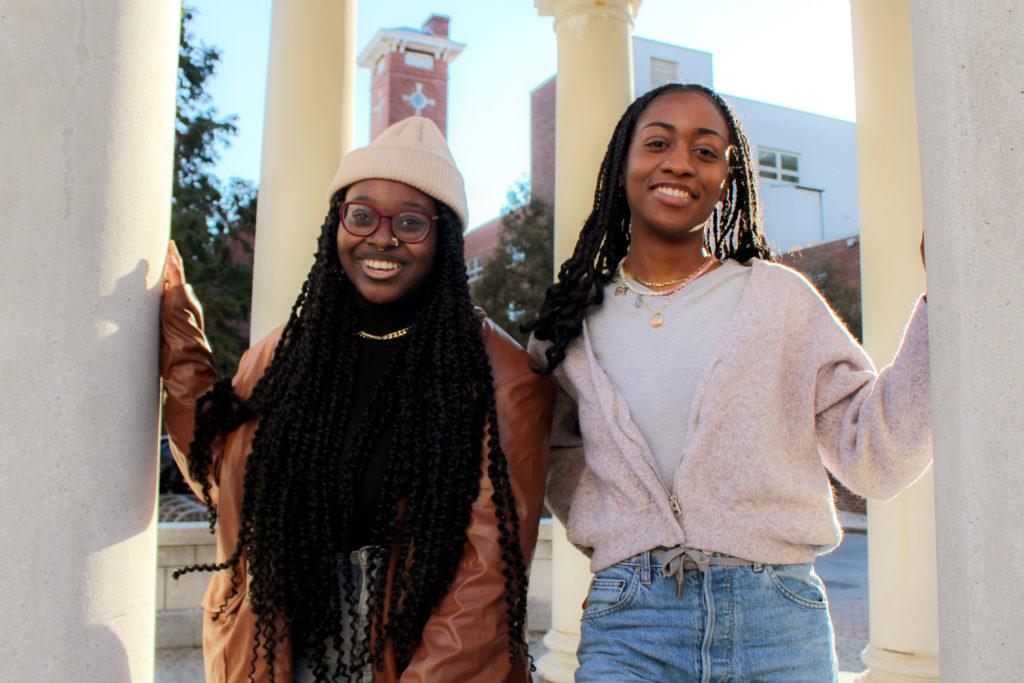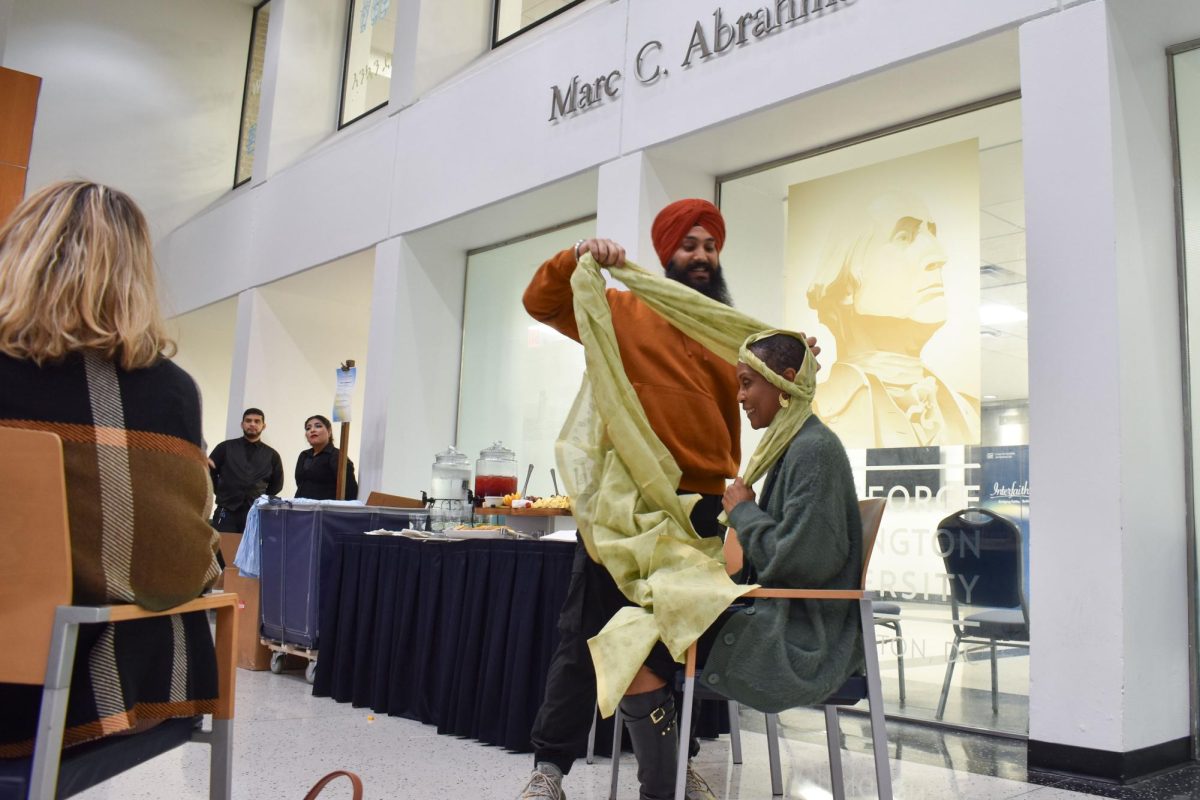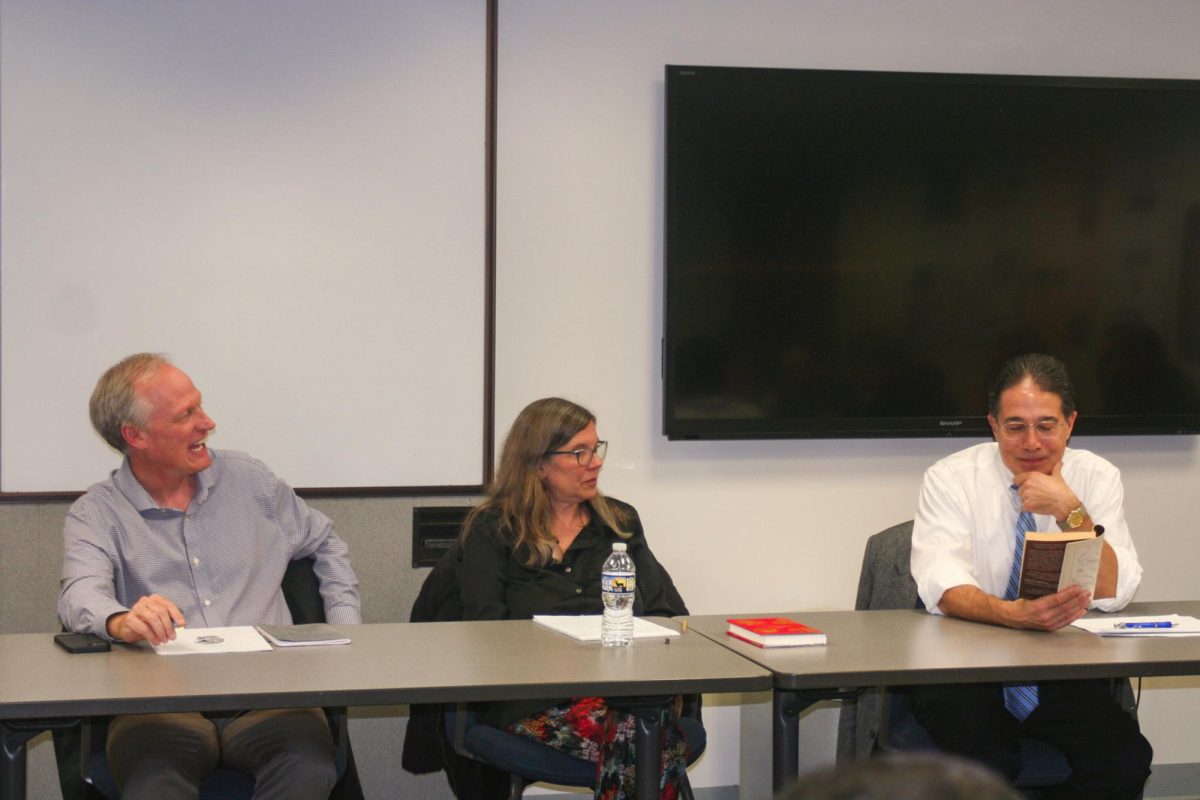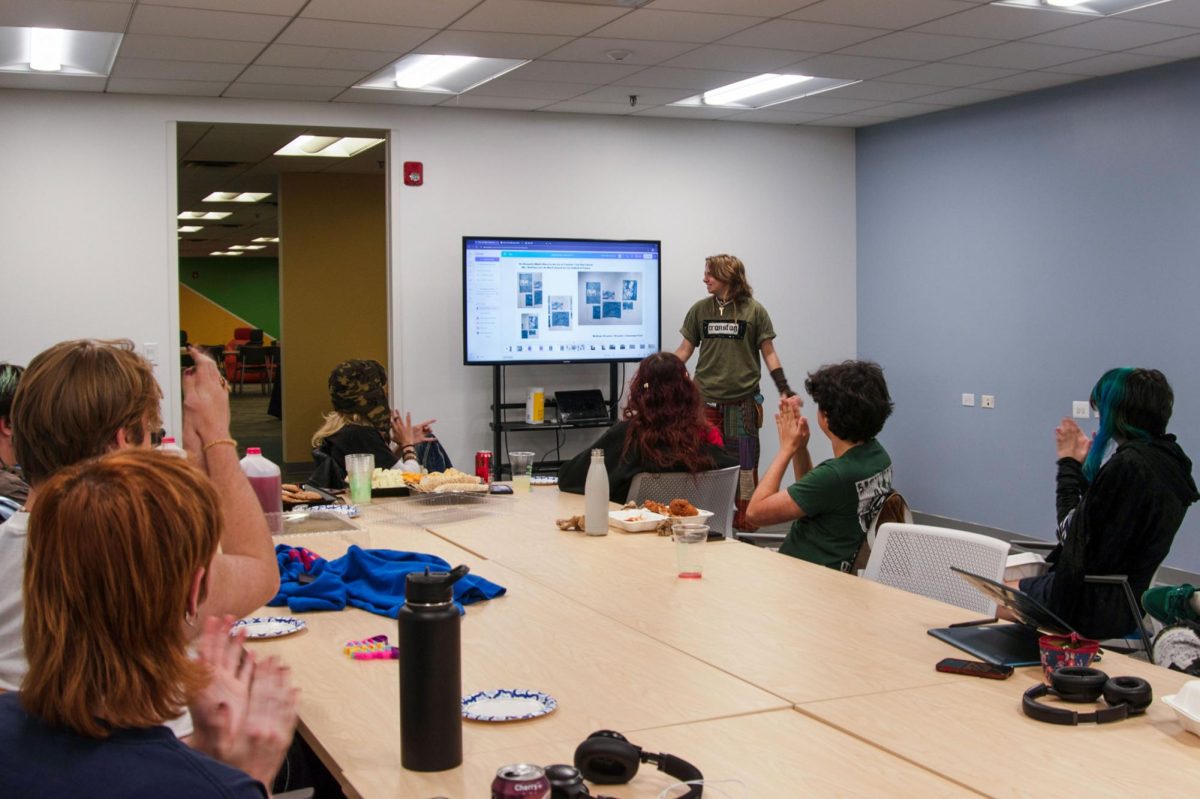This year’s Black Heritage Celebration is highlighting Black strength and unity on campus after the University emerged from the COVID-19 pandemic.
“Homecoming: Been Black” is the central theme of this year’s celebration to symbolize the Black student community’s return to campus with a mix of 20 in-person and online events sponsored by 17 religious, social and Greek life organizations. Student leaders organizing BHC said this year’s celebration is the first with in-person elements since students were sent home following the pandemic’s outbreak two years ago and is emphasizing the Black community’s strength and unity that has thrived since GW’s reopening this fall.
Funcia Jean-Louis, a junior and the co-chair of BHC, said BHC’s executive board members hoped to make programming this year “as diverse as possible,” through social, religious, professional and artistic events. She said BHC organizers are hosting programs like “Black Hair Been Poppin’” – where students will share poetry and learn about the evolution and history of Black hair – and a DMV mixer that includes Georgetown, Catholic and American universities.
“I hope that people are able to first find the place that makes them home and people who look like them or have the same cultures as them so they can find that space on campus and also interact with other people who you might not be used to socializing with or you probably aren’t familiar with where their culture is from,” she said.
Jean-Louis said this year’s theme represents the Black community’s homecoming from two years of separation during the pandemic. Black students have united through in-person interaction throughout the academic year including the reopening of the George Washington Williams House and BSU’s plans to expand its on-campus presence leading up to GW’s fall reopening.
“The fact that we were actually allowed to come back and do this celebration after not having done it for so long, it kind of just signifies the return to the campus,” she said. “And also with return to campus, just our unity together to try to reconnect as a Black community, especially having been separated for so long.”
Kiera Sona, a junior and BHC co-chair, said BHC’s e-board started to plan the celebration in October but had to be flexile as GW’s COVID-19 guidelines became unpredictable toward the end of the fall semester.
She said juniors and seniors who were on campus for the last in-person celebration in 2020 spearheaded planning efforts for this year’s events. Sona said the BHC organizers worked with a truncated budget to plan events compared to past years’ celebration after the Student Association budget for the event dropped by more than $10,000 compared to previous years.
“It was kind of challenging to try to do it all from scratch,” she said.
[gwh_image id=”1158034″ credit=”Media Credit: Erin Leone | Photographer” size=”embedded-img” align=”none”]Co-chairs Funcia Jean-Louis and Kiera Sona organized the first BHC with in-person elements since 2020, despite a dip in funding and uncertainty surrounding the status of GW operations. [/gwh_image]
Rayyaan Potter, a junior and the event director for the Muslim Students Association, said MSA will sponsor a BHC event entitled “Muslims Come in Black Too” that fosters dialogue between students who may have conflicting views on statements that participants respond to during the event.
“We’re important to the student body, and we should be heard and our opinions matter,” she said. “And in no way am I trying to say that our struggle, our adversities, our strides are more important than anybody else’s. I just feel that there’s a lot of ignorance when it comes to that, and I want to bring them to light.”
Blake Coleman, a freshman and the programming director for the Black Girl Pre-Health Collective, will sponsor an event entitled “Been Here: The Black Contribution to Medicine” about the “intentional and unintentional” roles that Black people have played in the field of medicine.
“We will start with a conversation about some of the contributions that we have made through scientists and researchers belonging to the Black community, but then also the unintentional without consent contributions in terms of technological advances made by performing experimental procedures or experiments where Black bodies were used against their will,” she said.
Gianna Cook, the president of the Black Student Union, said BSU – which funds and promotes BHC – will sponsor its first Black Solidarity Conference made of a series of professional workshops.
She said this year’s theme emphasizes the strength of the Black community during the pandemic and through the multiple police murders in 2020, including the killings of Breonna Taylor, George Floyd and Ahmaud Arbery.
“I really just think that for me, ‘Been Black’ just represents resilience, represents strength, it represents just us really walking in our full autonomy as Black people,” she said.
Cook said she hopes being surrounded by other Black students uplifting one another will foster a sense of belonging for Black students at GW.
“I feel like you really don’t get to sometimes on a daily basis realize how powerful your community really is and how vital they are to your experience,” she said. “And I think BHC – and just all year round, but specifically BHC – gives you that sense of proud and pride and empowerment and realizing like, ‘Wow, there’s so much more of us.’”
Tony Peeler, the vice president of BSU, said the events and theme are a reminder for Black students of the community that exists on campus, even though the general student population can sometimes feel disconnected from them especially as a part of a predominantly white institution.
He said he will host an event entitled “Uncomfortable Questions” where students will discuss questions that affect the Black community on and off campus. He said BHC also includes a photoshoot event that took place Sunday at the Flagg Building in the Corcoran School of the Arts and Design, where Black students could showcase their fashion.
“What that means to me is that being Black is beautiful, being Black is amazing,” he said. “We go to a [predominantly white institution], and sometimes it’s easy to get lost in that I’m the only Black person in the class. But having a month devoted specifically toward you and having all these events, having a house on campus for you and knowing these communities and knowing these people and meeting these people – you have a family here, and you have a community – I think is really special.”








